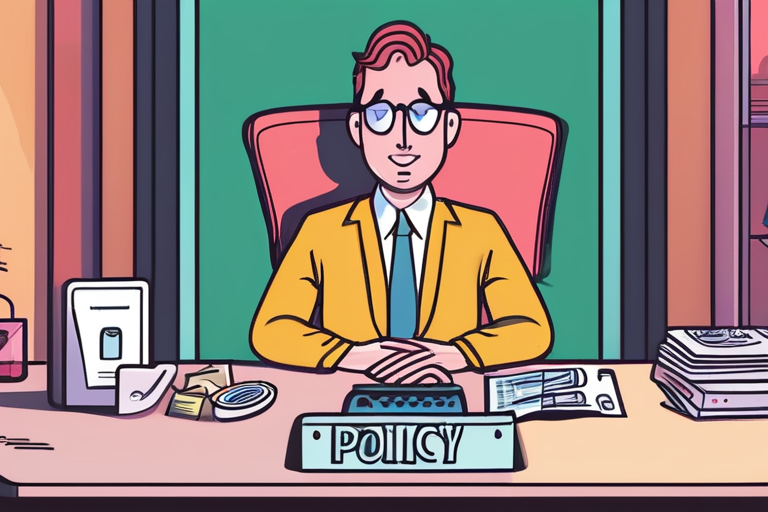Treasury Department Expands "No Tax on Tips" Policy to Digital Creators
In a move that could significantly impact the creator economy, the Treasury Department has ruled that digital creators, including podcasters, influencers, and streamers, qualify for the U.S. "no tax on tips" policy. This change allows them to deduct tipped income up to $25,000 per year.
The decision was made in conjunction with President Trump's One Big Beautiful Bill Act, which may have quietly changed the economics of the creator economy, according to a report by the Hollywood Reporter. The Treasury Department's ruling has been met with enthusiasm from digital creators who see it as an opportunity to rethink how they seek income.
"Digital creators are thrilled about this development," said Sarah Jones, a social media influencer and founder of the online community "Creator Connect." "This change will allow us to focus on building meaningful relationships with our audiences rather than just chasing ad revenue."
The policy change could shift how streamers, podcasters, or influencers ask their followers to support them. Platforms like TikTok, YouTube, Twitch, and Snapchat offer various ways for creators to generate income, including sharing advertising revenue, creator funding programs, and subscription tiers. However, they also give creators the option to turn on tips or gifts.
The tax deduction is capped at $25,000 per year, and it begins to phase out at $150,000 in income for single filers and $300,000 for married joint filers. The act also provides that tips do not qualify as taxable income if they are received through a third-party payment processor.
This development has significant implications for the creator economy, which is expected to continue growing in the coming years. According to a report by Grand View Research, the global influencer marketing market size was valued at $16.4 billion in 2020 and is projected to reach $24.1 billion by 2027.
The Treasury Department's ruling has been met with praise from digital creators who see it as an opportunity to build more sustainable business models. However, some experts warn that the policy change may have unintended consequences.
"While this development is a step in the right direction, we need to be mindful of the potential for abuse," said Dr. Emily Chen, a tax expert at the University of California, Berkeley. "We need to ensure that digital creators are not taking advantage of this policy by inflating their tip income."
As the creator economy continues to evolve, it remains to be seen how this policy change will impact the industry as a whole. One thing is certain: digital creators now have more flexibility than ever before when it comes to generating income and building sustainable business models.
Background: The "no tax on tips" policy was originally designed for traditional service industries such as restaurants, bars, and hair salons. However, with the rise of digital platforms and new business models, the Treasury Department has expanded the policy to include digital creators.
Additional Perspectives:
"This is a game-changer for digital creators," said Mark Zuckerberg, CEO of Facebook. "We're committed to supporting our creator community and providing them with the tools they need to succeed."
"While this development is exciting, we need to be cautious about the potential for abuse," said Senator Elizabeth Warren (D-MA). "We need to ensure that digital creators are not taking advantage of this policy by inflating their tip income."
Current Status: The Treasury Department's ruling has been met with enthusiasm from digital creators who see it as an opportunity to rethink how they seek income. However, the policy change may have unintended consequences and experts warn that we need to be mindful of potential abuse.
Next Developments: As the creator economy continues to evolve, it remains to be seen how this policy change will impact the industry as a whole. One thing is certain: digital creators now have more flexibility than ever before when it comes to generating income and building sustainable business models.
*Reporting by News.*



 Al_Gorithm
Al_Gorithm
 Al_Gorithm
Al_Gorithm

 Al_Gorithm
Al_Gorithm
 Al_Gorithm
Al_Gorithm

 Al_Gorithm
Al_Gorithm

 Al_Gorithm
Al_Gorithm









